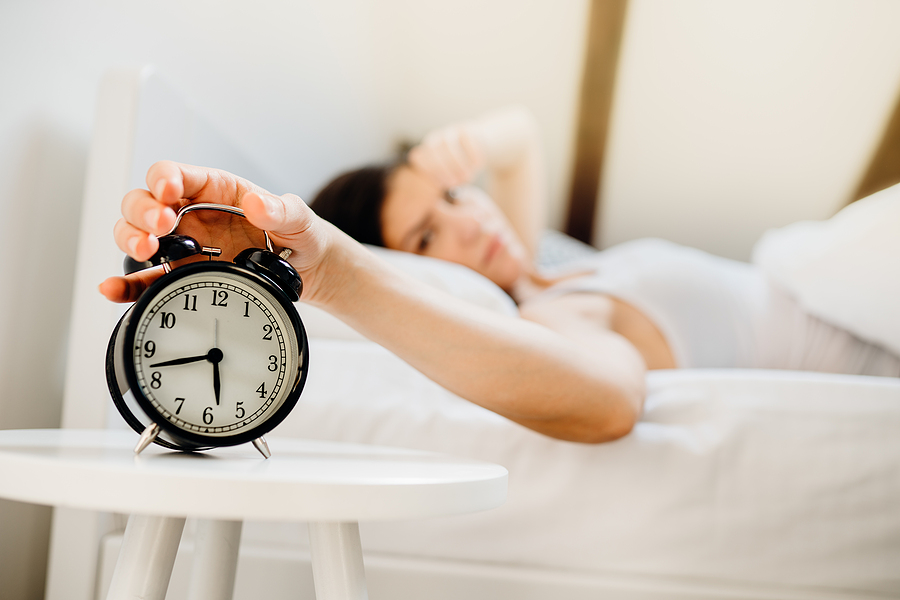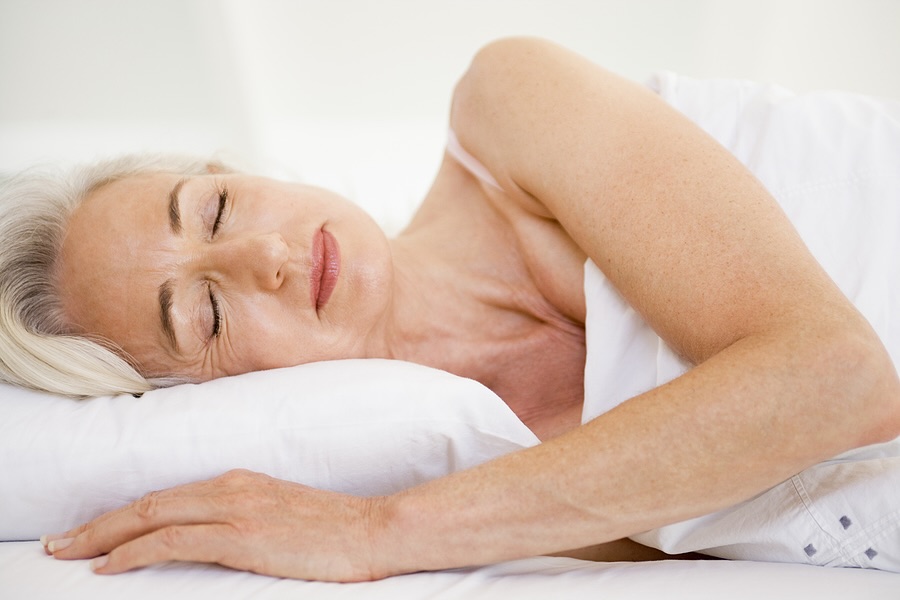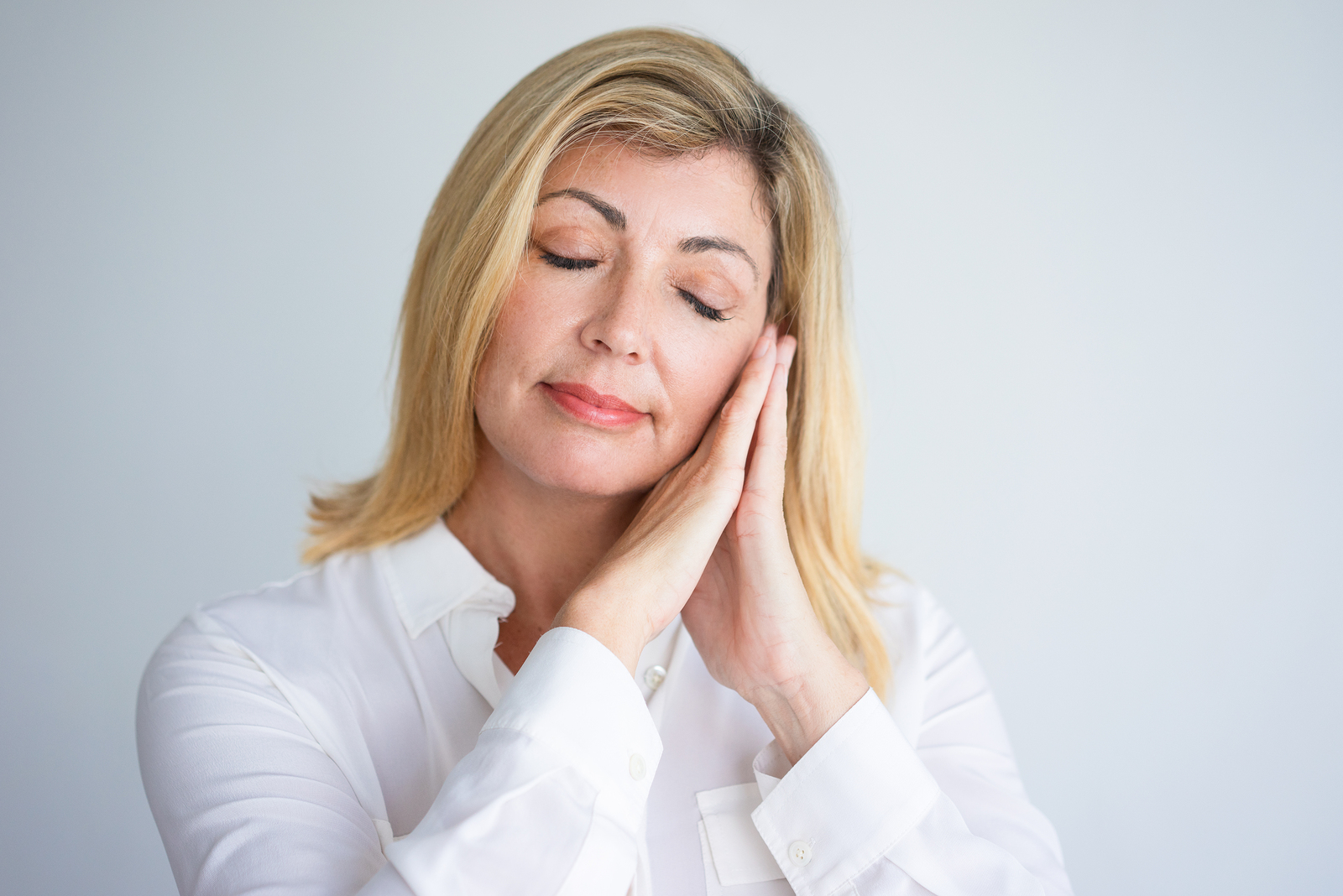Our ancestors had it pretty easy when it came to sleep – when the sun went down you went to bed (and to sleep) and when the sun arose so did you! Those certainly were simpler times, it seems.
I hear so many women these days talking about waking well before the sun, staying up well after darkness has fallen, or waking just a few short hours of sleep and tossing and turning through the night. What’s happened?
I can put into one simple word: Stress. This isn’t just your ordinary everyday stress – like waking up late and rushing through your morning routine – but varied, sometimes chronic stress which dysregulates your normal body rhythms and causes multiple imbalances which disrupt your sleep.
Stress is taking a toll on your body’s systems
Your adrenal glands, which release your stress hormones (adrenaline and cortisol), are being called into action more and more during our busy days. Your body doesn’t differentiate between the stress caused by seeing police lights in your rearview mirror and the stress placed on your body by missing a meal. In either scenario, cortisol is released to help you. When you are under constant stress, whether real or perceived, there may be a continual flow of cortisol. And when your cortisol level is high at night, your body is getting the message to stay alert and awake.
When sleeping, our parasympathetic nervous system should be moderating our blood pressure, breathing and heart rate into a relaxed state. If we can’t relax, sleep will be difficult to achieve.
Relieving stress to promote healthy sleep
So many patients I see are so desperate for sleep that they have tried over-the-counter products which sometimes produce unwanted side effects. When I talk with these women, they want help in achieving a restful, restorative sleep.
So many are surprised when we talk about keeping stress at bay during the day to help with sleep. Finding ways to keep your stressors in balance will pay off with a good night’s sleep. Sometimes making a list with a potential plan helps, other times talking with a friend helps, exercise helps for some, prayer helps for others. What’s important is that you find something that will work for you!
I also talk with my patients about the stress that a body out of balance can cause with respect to sleep. For instance, when your hormones are out of balance, you may experience night sweats. Talk about disrupting sleep! If you are not eating well and your blood sugar is moving through peaks and valleys, especially at night, you may wake up hungry. Getting out of bed, turning on the lights, eating, and then trying to get back to sleep can be a real challenge! So many factors help to keep your body in balance. Good sleep is a culmination of all of these!
I also suggest women eat mindfully when it comes to sugar, alcohol and caffeine. Keeping a food journal also helps.
Creating a good sleep routine
Creating a sleep routine can be very helpful. Setting your bedtime to allow 7 hours of sleep establishes a routine which your stressed-out body will appreciate.
Practice good sleep hygiene. Here are some suggestions:
- Limit light in your bedroom. Cover your windows with dark shades or curtains and block lights from digital devices.
- Keep the temperature of your bedroom comfortable for sleep. Being too hot or too cold will awaken you.
- Turn off electronics and stop using email, text, and social media at least one hour before you go to bed. Allow your brain time to ‘power down.’
- Choose your reading carefully – any reading that is not relaxing or causes your mind to whir is not going to help you sleep.
- Save your bed for sleeping or sex. Send the right message to your body that being in bed is a time for sleep.
- Sleep only in your bed.
- Wear comfortable sleepwear. Clothes that are too tight or too loose will twist and bind and inevitably wake you.
- Consider a dietary supplement to help you fall asleep or stay asleep.
- Evaluate when you exercise. If you’re routine has been to exercise at night, you may want to consider moving that time to morning or midday.
Sleep is so important to help your body regenerate, rebuild and restore. A good night’s sleep is worth every effort you put into it!







